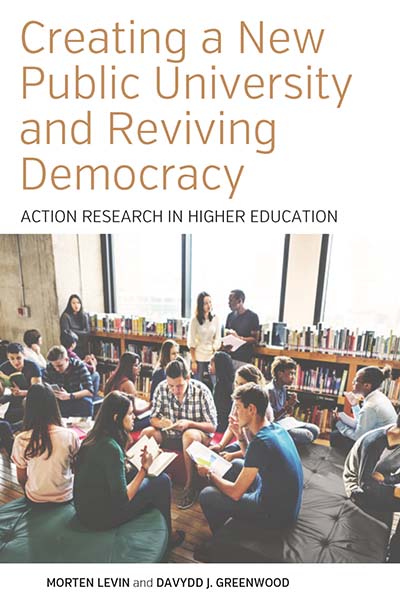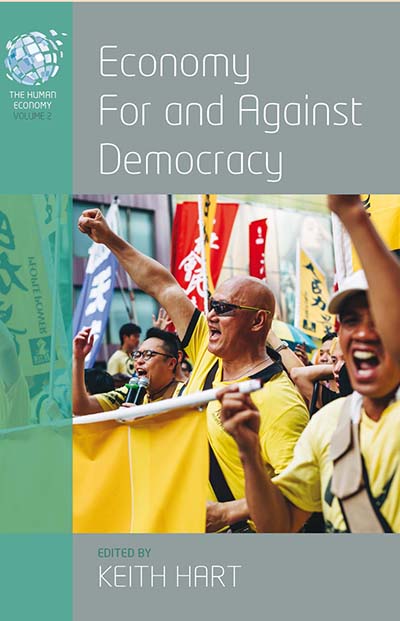 The following is a post by Davydd J. Greenwood, Goldwin Smith Professor of Anthropology Emeritus, Cornell University
The following is a post by Davydd J. Greenwood, Goldwin Smith Professor of Anthropology Emeritus, Cornell University
The following are some management verities that abound in current university administrations:
- Good universities require highly-paid leaders hired by Boards of Trustees through executive search services.
- Good universities have large administrative staffs, often outnumbering the faculty.
- Good university leaders must impose accountability and quality control to make their university rise in the rankings.
- The cost of higher education will always go up.
All these verities are false as a single example can show. The Mondragón University in the Basque Country with 4,000 students and 4 colleges operating 8 campus locations throughout the Basque Country has a central administrative staff of 3 senior administrators and their secretaries. Highly ranked and successful, it operates daily through collaborative governance including the students, faculty, and staff who “run” the university. If this is possible, then having more managers than workers, having vast administrative overheads, and governing from the apex by imposed authority, are not laws of nature. Mondragón University shows that a successful university business model can be unlike any of our currently over-administered and radically inefficient universities. In science, an exception to the rule demonstrates that the rule is false.
Most explanations of the decline and fall of public higher education blame the corporatization of our institutions and implementation of business models for the problems. First-hand knowledge of innovative private sector organizations show they share more features with Mondragón University than with our current universities.
Successful businesses do not resemble our current universities. These institutions are poorly organized, over-staffed with administrators, and suffer from huge pay disparities and runaway costs. Successful businesses generally are team-based matrix organizations whose cross-disciplinary, cross-functional teams focus on products or key processes. Each team has experts from all relevant stakeholder/functional areas in the organization. The business leaders are coordinators and process champions, not authoritarian bosses. Salary differentials are generally modest. In these well-run organizations, the people who produce the “value” for the organization play a role in structuring and managing operations.
This contrasts sharply with the administrative bloat in universities, the authoritarianism of “parachuted in” academic leaders, and salaries for senior academic administrators that often are 40-50 times higher than those of the secretarial staff and groundskeepers. The power apex is remote from daily work processes and thus leaders cannot make competent management decisions. Nor can they understand why their decisions fail to produce the desired results. Failure instead is blamed on the faculty and the students. Ultimately, these policies prevent working and middle class students from having a high-quality education and gaining the consequent social mobility and civic awareness it can produce.
We are reaching the nadir in this race to the bottom. The only way forward is to create higher education anew through the democratic practices of participatory democracy, as in the Mondragón University. These practices are the core of Action Research. They require all the relevant stakeholders to collaborate in establishing the mission, structures, and practices of the institution. Together they must enact these missions and keep constant evaluation processes going to see how well they are accomplishing the goals they agreed on, making the necessary adjustments to improve on a continuing basis.
The “freedom to teach” and the “freedom to learn” essential to Bildung involves the ongoing recreation and reinforcement of universities that respect and practice academic freedom, academic integrity, and participatory democracy in every organizational dimension. These recreated universities would be schools for democracy and organized to produce Neue-Bildung for the university stakeholders and for society at large.
Critique and wringing of hands is easy; action research to create democratic universities is not. Where a powerful few currently dominate, they will react to any threat to their power and money and fight back. Changing universities into such organizations requires radical moves, the first being understanding that such change is possible. We have laid out the analysis and needed actions in our book, Creating a New Public University and Reviving Democracy: Action Research in Higher Education.
The current quagmires created by the neo-liberals in universities (and most other institutions) offers some hope. Most of the stakeholders, regardless of their politics, are aware that the current university system is broken. What matters now is to have concrete plans for a way out of the quagmire and to be ready for an arduous campaign to recreate universities, an essential element in the rebirth of democracy itself.
Learn more about Davydd J. Greenwood’s new book Creating a New Public University and Reviving Democracy: Action Research in Higher Education here.



